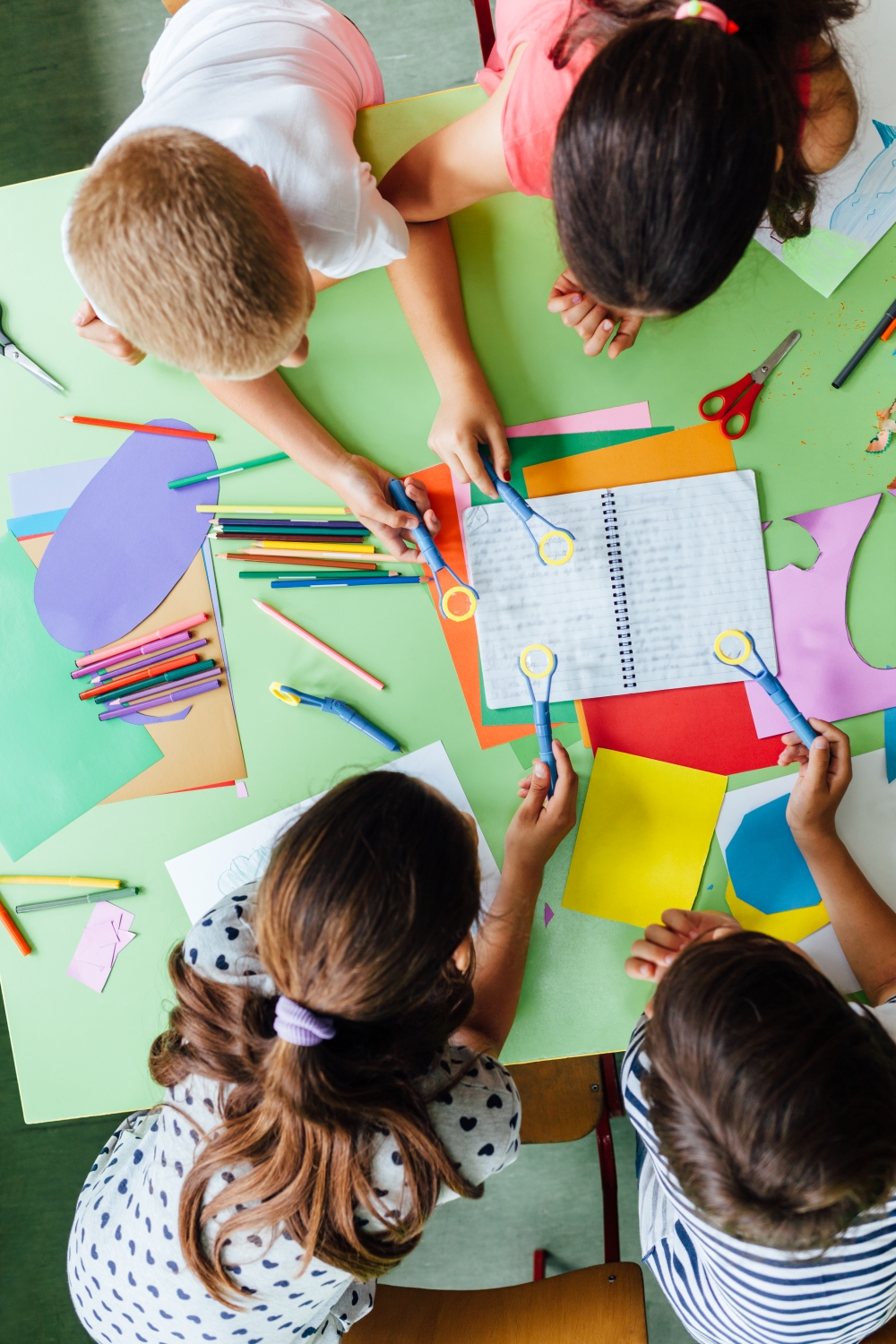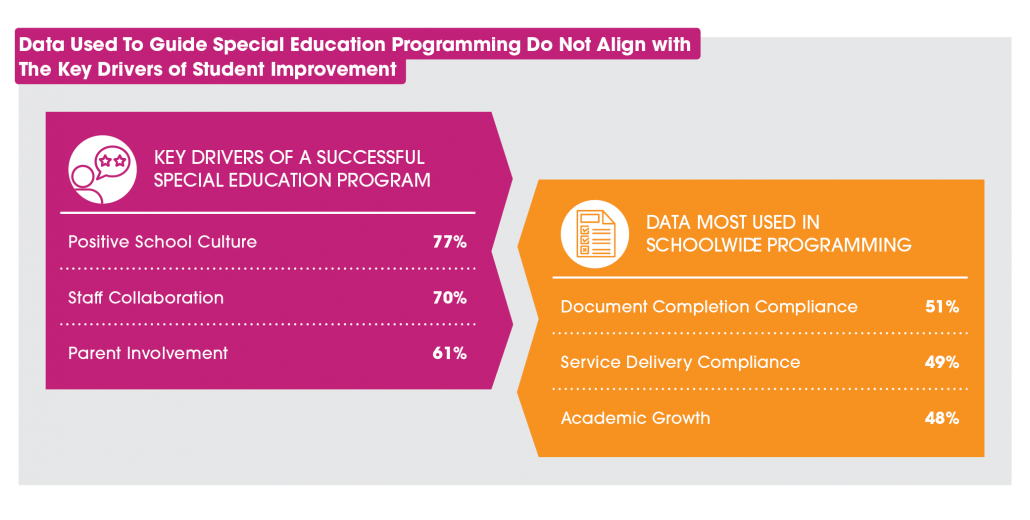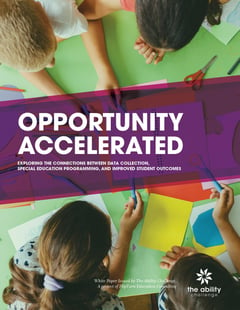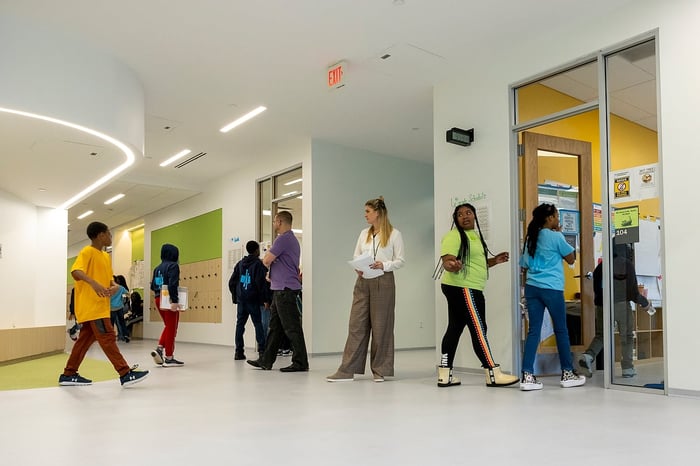First Steps toward Special Education School Improvement
Data • 8 min read • Aug 1, 2019 9:43:27 PM • Written by: Sarah Sandelius

Ever wonder how schools use data to make decisions about special education programming? Well, the short answer is that they don’t. Understanding and addressing this disconnect is a key component of our work here at The Ability Challenge (ABC).
Last summer, we surveyed schools from across the country to learn how they use (or fail to use) data to make special education programming decisions. As highlighted in our new publication, Opportunity Accelerated: Exploring the Connection between Data Collection, Special Education Programming, and Improved Outcomes, we discovered that not only are schools using very little data related to special education overall, but what data they do use aren’t likely to be connected to what is identified as helpful for planning, nor is it highly ranked as a key driver for improvement.  Based on these and other insights, we’ve made three main recommendations as first steps toward special education school improvement:
Based on these and other insights, we’ve made three main recommendations as first steps toward special education school improvement:
- Use the data that is already being collected;
- Ensure alignment between success and practice; and
- Enhance tools for special education programming.
We recognize there are systemic challenges and deep foundational issues that require investment in the hard work before mindsets will truly change, so we’ve framed our recommendations in ways that enable schools to take the first steps toward improvement.
To facilitate this work, ABC is digging in to learn more about the specific pain points schools currently experience and build solutions to those challenges that embrace these recommendations. For example, we took a deeper look at one of the elements schools identify as most important for special education improvement – staff collaboration. Survey results reveal an interesting and promising trend: while schools with formal structures for collaboration use significantly more data for programming and serving diverse learners, a shocking 65% of schools currently report having no formal structure to collaborate. For ABC, this means we have a tremendous opportunity for growth.
So while we’ve started scoping a more expansive definition of success in our Framework for Special Education Quality, we’re also honing in on how educators work together as a case study on strategic school improvement. We’re building and testing tools to support schools looking to enhance authentic collaboration skills among staff to the end of better serving the individualized needs of diverse learners.
Effective collaboration between pedagogues, providers, and others working with students will facilitate a deeper understanding of each student’s needs and how to teach to those needs, thereby building a culture of shared responsibility for serving all students. In the era of increasingly inclusive settings, we owe it to our students to ensure all staff, especially those not traditionally trained in differentiation and/or specialized instruction, have the necessary tools to get it right.

Accelerate opportunities, improve outcomes with The Ability Challenge!
Sarah Sandelius
Our Latest
Related Articles

March 25, 2021 | Culture of Inclusion
Why Targeted Collaboration Is The Missing Link for Special Education Improvement
Prioritize equitable and inclusive classrooms, even in remote and hybrid settings, with Targeted Col...

February 15, 2024 | Administrators
Three Special Education Investment Recommendations on a Limited Budget
Learn how to optimize your budget and improve special education in your school. Discover three strat...

September 15, 2023 | Administrators
Transforming Behavior with Simple Shifts: The ACERS Framework for Classroom Transitions
Improve classroom management, reduce disruptive behavior, and enhance student engagement with the AC...
